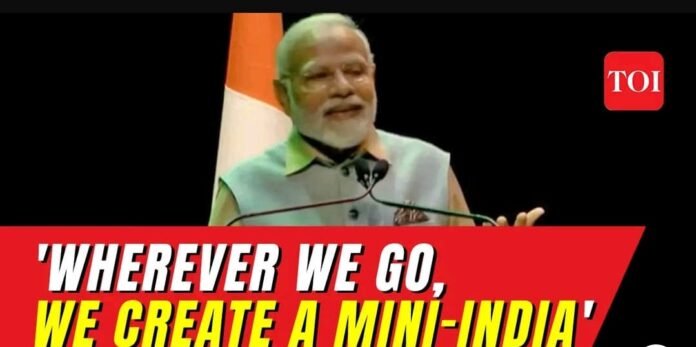In a recent address, Indian Prime Minister Narendra Modi emphasized the need to restructure the United Nations Security Council (UNSC) to better represent the evolving global landscape. With a focus on ensuring a more equitable distribution of power, PM Modi voiced India’s strong support for its inclusion as a permanent member in a reformed UNSC.
Highlighting the importance of India’s participation, PM Modi underlined that the UNSC’s ability to effectively speak for the world is hindered without India’s representation. As the world’s second-most populous country and a prominent global player, India’s inclusion as a permanent member would serve to enhance the Council’s legitimacy and ensure that a diverse range of perspectives is considered in addressing international peace and security issues.
PM Modi’s remarks underscored India’s longstanding advocacy for reforming the UNSC to reflect contemporary geopolitical realities. India, along with several other countries, has consistently voiced the need for an expanded Security Council that accommodates emerging powers and adequately represents developing nations. The objective is to establish a more inclusive and representative decision-making body that can effectively respond to the challenges of the 21st century.
The call for restructuring the UNSC is not a new one. For years, discussions and negotiations have taken place within the United Nations on potential reforms. India’s firm stance on the matter further reinforces the urgency to address the imbalances in the current system and build a more democratic and representative framework for global governance.
India’s aspirations for permanent membership in the UNSC are rooted in its commitment to multilateralism and its desire to play a greater role in shaping global affairs. PM Modi’s assertion reflects India’s determination to actively contribute to the maintenance of international peace and security, while also advocating for the interests of developing nations on the world stage.
While the path to reforming the UNSC remains complex and requires the consensus of member states, India’s unwavering stance sends a strong message about the need for a more inclusive global governance structure. As the world continues to grapple with complex challenges, including conflicts, climate change, and pandemics, the effective representation of diverse perspectives becomes increasingly imperative.
As the international community evolves, it is essential to ensure that key decision-making bodies such as the UNSC are representative, accountable, and capable of addressing the complex and interconnected challenges facing humanity. India’s call for its inclusion as a permanent member in a restructured UNSC serves as a reminder of the pressing need to adapt global institutions to better reflect the realities of the 21st century and foster a more inclusive and equitable world order.

